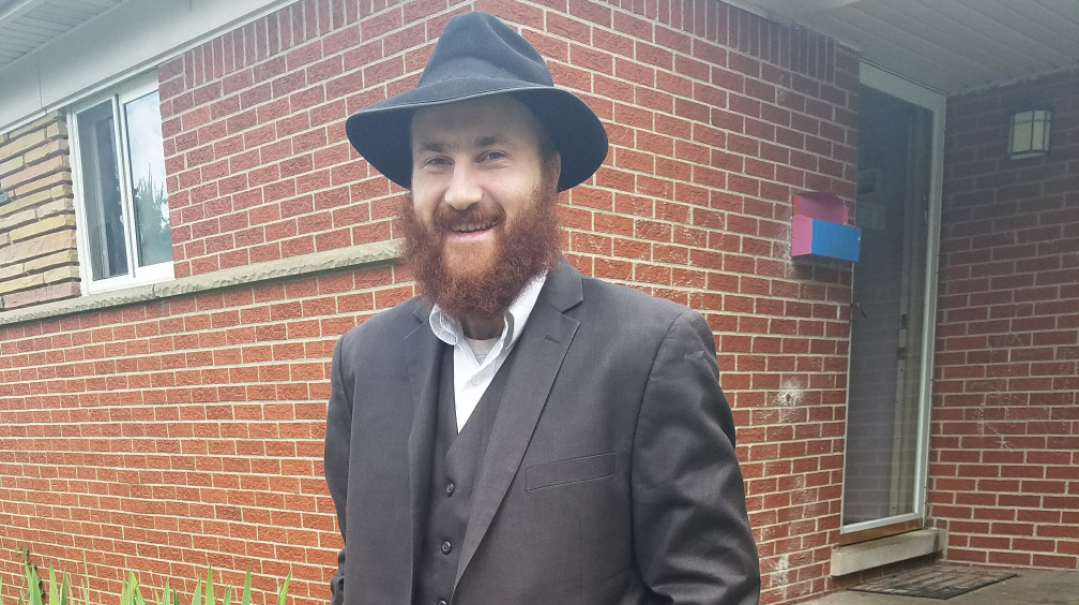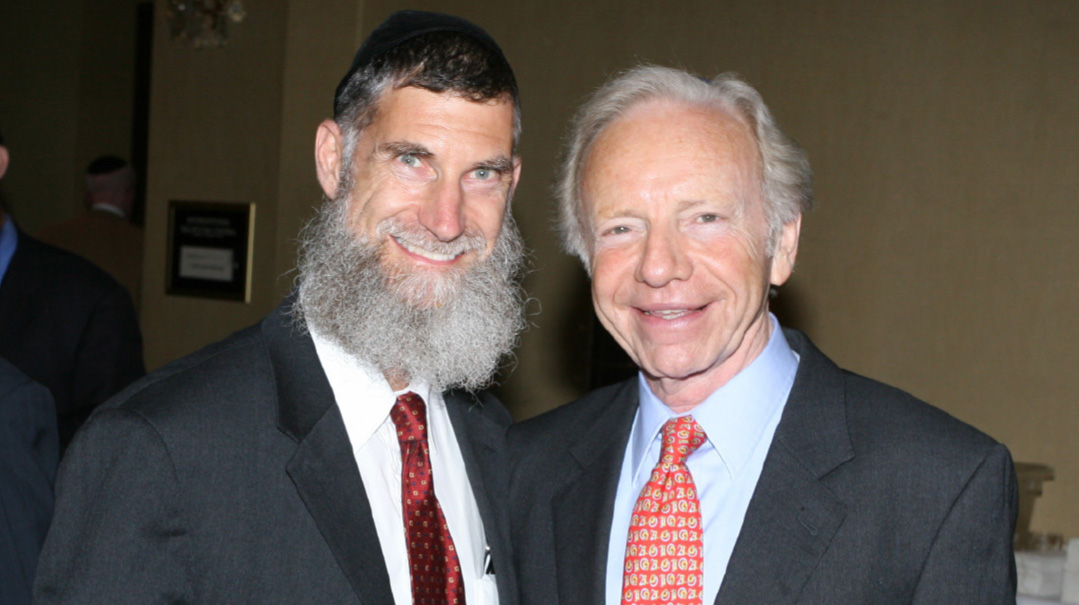Plans Derailed
| October 10, 2023I learned a great deal in those tension-filled minutes waiting for the train to depart

MY recent trip to Eretz Yisrael was memorable, but most dramatically so in its waning hours. I was scheduled to leave on Sunday night, July 23, just in time to send my daughter off to camp on Monday morning. I planned to get to the airport by train, and I figured that if I checked in ahead of time, I could leave Yerushalayim two and a half hours before my scheduled 11:25 p.m. departure. Ambitious, perhaps, but I wanted to daven Maariv with a minyan, and I had managed to catch flights on this timetable before.
I hadn’t counted on the “Day of Disruption” — mass protests against the judicial reform that brought thousands of Tel Avivians to Jerusalem… and sent them back home in the evening, just as I was attempting to reach the airport, on the same train line.
Entering Jerusalem’s Yitzchak Navon Train Station, I immediately heard the thundering roar of “De-mo-krat-ya.” The escalators swarmed with flag-bearing demonstrators, their shirts adorned with slogans and their voices hoarse from hours of chanting.
I tried my best to navigate the crowds as I was directed from one platform to another, dragging a massive, lopsided duffle along with many other bags. Finally, I made my way into a jam-packed car… and waited. The train showed no indication of moving anytime soon, and as the only black-kippah-clad individual, I soon sensed the other passengers looking at me.
Although I’ve been following the judicial reform debate from afar — I even gave a series to my college students about its putative and deeper causes — I learned a great deal in those tension-filled minutes waiting for the train to depart.
Most notable was the pervasive sense of fear: My interlocutors truly believe the right will disband the High Court and impose some version of sharia law on the entire population. People began grilling me: Why do chareidim not serve in the army? Why can’t they combine Torah study with work like they do in America?”
Others came to my defense: “He’s an American, leave him alone.” Or, “He’s just an individual, don’t expect him to speak for a whole population.”
Some people frightened me; their vitriol was so thick, their cynicism so pronounced, and, in my opinion, their assessment of the facts on the ground so distorted. Others engendered empathy — people truly worry for the future of their country, about which they care deeply. These are profound, existential challenges, and even if one has “answers,” these should only be offered from a position of true understanding and empathy.
And then there was Sivan, a secular, decidedly leftist woman of about 40, whom I had observed shouting “De-mo-krat-ya” at incoming right-wing passengers — Jerusalemites who had spent the day promoting judicial reform on Kaplan Street in Tel Aviv — with immense fervor.
As we waited for our train to depart, Sivan learned about my impending flight, and began to worry whether I would make it.
When the conductor finally announced that our train would not be departing and directed us to an entirely new platform, Sivan insisted on helping me schlep all the way to the new train. She grabbed my largest, clunkiest duffle, as well as another bag — which she soon learned held my tallis and tefillin. Simultaneously, she was watching over her elderly father, ensuring that he, too, made the train, and settled in one of the few available seats.
At about 10:35 p.m., we finally departed. Sivan and those around her excitedly calculated exactly when we would arrive at Ben-Gurion and instructed me on the exact steps I should take there.
Twenty-five minutes later, we arrived at the airport. I began to wave goodbye and thank Sivan, but in an instant, she leapt off the train, holding tightly to my tallis bag in addition to the large duffle.
“You’re coming with me?!” I asked incredulously.
“Mah pitom? Of course!” she said.
Her destination had been North Tel Aviv, but her new mission was helping me make my flight. Unbeknownst to me, she had made sure her father was settled on his own for the last leg of his trip so she could accompany me into the airport, before continuing on home herself.
When security told her that I could not possibly make my flight, Sivan sprinted to the United desk to plead with them in rapid-fire Hebrew, the way only a native sabra can, entreating them to call ahead to the gate, to do anything to help me.
Along this journey, I learned a great deal about this angel. She is a ninth-generation Israeli on her mother’s side, and her family name, Drori, was given to them by David Ben-Gurion, since this branch of the family had achieved freedom (“dror”) following the Holocaust.
Her grandfather was a chazzan in Raanana, and he gifted her a precious siddur. Every Pesach, she and her sister insist on abstaining from any shred of chometz — “ad hasof,” she stressed, even refraining from kitniyos.
Sivan decided to switch careers — she had studied cognitive sciences, and worked in real estate — to attend medical school, in Poland, no less. She is currently deciding between specialties in internal medicine, emergency medicine, and pediatrics.
Sivan transformed my stressful, emotionally jarring, sweat-filled evening into something else entirely. Reflecting on the events, I noted that the Torah was given in Sivan, and as we know, that epochal moment represented Jewish unity at its apex… k’ish echad, b’lev echad. And while such sentiments may seem elusive in Israel today, Sivan — a secularist, a stereotypical leftist from “Medinat Tel Aviv” — demonstrated a level of achdus and chesed that this self-proclaimed Torah-observant Jew could only dream of reaching.
While Sivan was perhaps the most remarkable in her generosity, I do not believe that she was alone in projecting a sense of familial connection amid very real differences. Many fellow travelers smiled and engaged in pleasant conversation with me, and quite a few responded approvingly when I shared my perspective that we need to remain one people, above all else. I discovered that, with some exceptions, the animating emotion at play is fear — justified or not — more than hate.
A story like this normally ends with the author breathlessly making it onto the plane, the gate closing just behind him. But we don’t always enjoy that happy ending — not right away, at least. I actually did miss my flight, and as a result, missed sending my daughter off to camp, as well as incurring additional, unplanned expenses.
It was worth it. Meeting Sivan, and watching a neshamah express chesed in its most selfless and pristine form, restored a little bit of faith that our fractured people can navigate this turbulent period, after all.
Rabbi Ari Koretzky is the executive director of MEOR Maryland, an Olami affiliate, as well as host of the Jews You Should Know podcast. He lives with his family in Silver Spring, Maryland.
(Originally featured in Mishpacha, Issue 981)
Oops! We could not locate your form.







